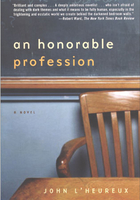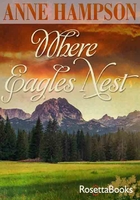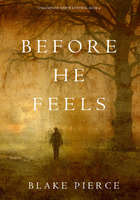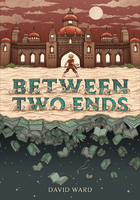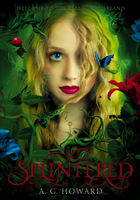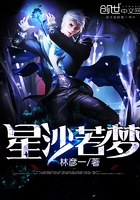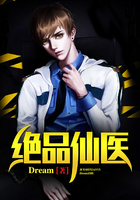An Immigrant
There are strong minds in every walk of life that will rise superior to the disadvantages of a situation, and will command the tribute due to their merit, not only from the classes to which they particularly belong, but from the society in general. The door ought to be equally open to all.
—Alexander Hamilton
The crossing of the sea was uneventful ... until just off the coast of Massachusetts, where Alex's ship caught fire. The crew quickly extinguished the flames, but the brig, badly damaged, limped into Boston Harbor. It was, perhaps, an omen. Alex's life in North America would be dramatic and adventurous.
Shortly after arriving in Boston, Alex journeyed to New York and presented himself at the offices of Cruger's shipping company to collect his allowance. There he met Hercules Mulligan, the younger brother of one of the firm's partners—and a member of the Sons of Liberty, a secret group dedicated to American independence. Hercules, who ran a tailor and haberdasher shop on Water Street, offered Alex a place to stay for a few days. Alex also met up with his chum from St. Croix, Edward Stevens, who was then a student at King's College in New York (now known as Columbia University).
Alex fell in love with New York City. It was already the second largest city in the colonies, behind Philadelphia and edging out Boston. Founded by the Dutch West India Company in 1623 as an outpost, New York had always welcomed businesses. By the time Alex arrived, the city was a major trading center among the thirteen colonies, with attractive shops, counting houses, and a variety of businesses, including newspaper publishers. Merchants and traders had already begun to gather around Wall Street. Unlike New England, New York welcomed non-English-speaking immigrants and had thus become a vibrant and diverse cultural center. When Alex arrived, fourteen languages were spoken in the city. He admired the commercialized city as a place of opportunity for newcomers and the poor.
Alex carried letters of introduction from Knox to the most prominent figures in New York and New Jersey. As a result of Knox's connections, Alex was a frequent guest at Liberty Hall, the New Jersey home of William Livingston, a member of both Continental Congresses and later a signer of the Constitution. Alex spent time with the Boudinot family, getting to know Elias Boudinot, a New Jersey lawyer who later served as president of the Congress. He became acquainted with John Jay, who became a New York delegate to the Continental Congress. Considered handsome, with boyish but finely chiseled features, Alex moved easily in the upper circles of society, dressing smartly in a long coat and white shirts with lace cuffs, his hair pulled back and tied with a black ribbon, in keeping with the style of the day—entirely looking the part of a well-bred young gentleman.
He was outgoing and gregarious, a good conversationalist who struck others as forthcoming and open—but there was much he concealed. He glossed over his childhood and family circumstances, avoiding the subject when he could, twisting the truth and implying that his parents had been married and that his father was the son of a Scottish nobleman when he couldn't.
At about this time, he shaved two years off his life, giving his birth year as 1757 instead of 1755 to hide the fact that he was late starting his education. Young men from good families generally began college at about fifteen. Frail and slight, with pale skin, narrow shoulders, and a tiny waist, he easily passed himself off as younger than he actually was.
The year was 1773, and the colonies were in turmoil. Most of Alex's new friends were strongly critical of Britain's rule over the colonies. Some, like Hercules Mulligan, were in favor of full rebellion. Others wanted to be fully integrated into the British Empire and to have the rights of citizens instead of mere colonists expected to do nothing more than send wealth back to Britain.
Alex, though, had little time for politics. He had a task: to acquire a college education. He planned to enter the College of New Jersey (later, Princeton University), a place known to be anti-British and pro-Patriot. Passing the entrance exam required mastery of French literature, English composition and literature, and mathematics; the ability to write in Latin; and the ability to translate Latin and Greek classics into English. While Alex was fluent in French from his mother, he didn't know a word of Latin or Greek. On Knox's recommendation, he enrolled at a preparatory academy run by a Princeton graduate, Francis Barber. The academy was located in Elizabethtown, New Jersey (now known as Elizabeth)—a charming village with windmills, two churches, and well-tended orchards.
The preparatory work Alex needed ordinarily required at least two years, but Alex threw himself into his studies with passion, studying late by candlelight and rising early for more lessons. In less than a year, he was ready for his exam. The president of Princeton, Rev. Dr. John Witherspoon, administered Alex's exam in a little study in the back of his house. He was impressed and declared Alex ready for college.
Alex wanted to earn his degree quickly, so he asked Witherspoon for permission to move at his own pace rather than follow the university's formal program. When Witherspoon refused, Alex applied to Columbia University, a university with Loyalist leanings. He preferred Princeton, but he was a young man in a hurry. The president of Columbia was Myles Cooper, a pro-British Loyalist who believed the colonies should remain part of the empire. Cooper agreed to Alex's unusual request. So in late 1773 or early 1774, Alex joined Edward Stevens at Columbia. His goal, like Edward's, was to become a doctor. He studied nonstop with the goal of graduating in two years.
Columbia then consisted of three faculty members and about twenty students housed in a large building. The campus was heavily wooded, located in what was then the northernmost reaches of the inhabited part of New York City. Alex joined a debating club and a literary society. He developed the eccentric habit of talking aloud to himself as he walked, rehearsing lessons or composing treatises.
He published his first political treatise, a thirty-five-page pamphlet entitled "A Full Vindication of the Measures of the Congress," on December 15, 1774. Like most political essayists of the time, he published anonymously. He signed his pamphlet "A Friend to America" and wrote that the British were "enemies to the natural rights of mankind ... because they wish to see one part of their species enslaved by another." He encouraged colonists to "repel this atrocious invasion of our rights."
There were many people, including Columbia college president Cooper, who believed that the colonists would never be able to defeat the British Empire. Alex refuted these ideas in another pamphlet, predicting that the French and Spanish would enter the war on the side of the colonies. He also accurately predicted how the war with Britain would be fought and won:
Let it be remembered that there are no large plains for the two armies to meet in, and decide the contest by some decisive stroke ... The circumstances of our country put it in our power to evade a pitched battle. It will be better policy to harass and ex haust the soldiery by frequent skirmishes and incursions than to take the open field with them, by which means they would have the full benefit of their superior regularity and skill.
When the rumor went around that "A Full Vindication of the Measures of the Congress" and the essays following had been written by a young college student, many didn't believe it. Some thought John Jay was the author. The essays were widely seen as every bit as sophisticated as the writings of Thomas Jefferson, who was then in his early thirties. Even Myles Cooper denied that one so young as Alex could have written the essays.
Alex mentioned death and martyrdom so often in his essays, letters, and poems that he seemed to have almost a death fixation, frequently glorifying a martyr's death. In urging the colonists to fight for liberty, he told them to "lead an honorable life or to meet with resignation a glorious death." He ended an essay with an allusion to Homer's Iliad: "Death is the worst, a fate which all must try; And, for our country, 'tis a bliss to die." And from his hurricane letter: "Death comes rushing on in triumph veiled in a mantle of tenfold darkness. His unrelenting scythe, pointed, and ready for the stroke."
Alex also had a gloomy view of humankind, saying, for example, that to expect a person with too much power to rule with kindness was to ignore history and the "degenerate" nature of the "race of mortals." Despite such a dark view of humanity, he was extraordinarily sympathetic to the suffering of others. When Elias Boudinot's infant daughter died, he stayed up all night with the grieving parents, and wrote a stirring and heartfelt eulogy. All through his studies, and later the war, he never stopped writing poetry. One thing was clear: Alex's feelings, like his intellect, ran deep.
On December 20, 1773, Alex's life changed forever. That was the night Paul Revere—an express rider hired by the Boston Committee of Correspondence and the Massachusetts Committee of Safety to carry important messages—galloped into New York City with astonishing news of colonial defiance. To protest the Tea Act, a band of the Sons of Liberty disguised as Indians had boarded British ships, and within three hours dumped more than ninety thousand pounds of tea into Boston Harbor. New York erupted into a furious whirlwind of rallies, protests, and speeches as New Yorkers debated whether to follow the example of the Bostonians.
THE TEA ACT was one of a series of regulations imposed by Britain on the colonies. The regulation, designed to save the East India Company from bankruptcy, granted the company a monopoly on importing tea to the colonies. The act ignited fury among the colonists, who resented Britain's attempts to force them to buy tea from British companies.
The colonies were on the brink of war, so Alex pulled himself away from his books to attend speeches and rallies. He made his debut on a political stage at a public meeting organized by the Sons of Liberty. In the midst of the crowds on a commons not far from the college, he waited for the right moment to leap onto the platform. Once on the stage, he urged the crowd to embrace North American liberty and reject "fraud, power, and the most odious oppression." When he stopped speaking, the crowd stood transfixed and amazed, marveling at the youth who spoke with such emotion and eloquence.
Alex had once wished for a war so he could prove himself a hero. In April, his wish came true. British Parliament declared Massachusetts in a state of rebellion. King George ordered his army to quash the insurgence. In Massachusetts, a skirmish later called the Battle of Lexington and Concord broke out between British soldiers and a motley Patriot militia called the minutemen, a band of civilians who boasted they could be ready to fight in a minute's notice. While Hamilton had foreseen this type of warfare, the British were shocked and scandalized. Instead of meeting face to face in an open battlefield, following accepted rules of warfare, the colonists hid behind walls and trees, ambushing the British with hit-and-run tactics.
While the Battles of Lexington and Concord proved indecisive, with both sides suffering losses, one thing was clear: The Patriots could stand up to the most powerful empire in the world. The Revolutionary War had begun.
Alex read books about infantry drills and military tactics, learning the art of war as eagerly as he'd learned to translate Greek and Latin. He joined a volunteer militia under the command of Captain Edward Fleming, a group that proudly donned green jackets and brown leather caps stitched with the motto "Liberty or Death." Small and lithe, Alex moved with grace and confidence. The military rolls listed the militia's name as the Corsicans, but they called themselves the Hearts of Oak. Each morning before classes, Alex and the other volunteers practiced drills in St. George's Courtyard. He followed political developments closely and took to writing letters to men in power, offering advice.
One night an angry mob of about four hundred men, enraged by Columbia president Myles Cooper's Loyalist views, pounded on the gates of the college. Alex and a friend rushed to Cooper's defense. Alex confronted the mob, risking his life as he tried to calm the angry men with a speech, imploring them not to disgrace a noble cause by attacking a defenseless citizen. Meanwhile, another student spirited Cooper away through the back alleys to a house where he could take refuge. From there Cooper boarded a British warship and set sail for England.
Not long afterward, when an angry group of Patriots tried to destroy the printing press of the leading Loyalist newspaper in New York, Alex wrote to John Jay suggesting that a law should be passed against such raids on private citizens. "In times of such commotion as the present," he wrote, "while the passions of men are worked up to an uncommon pitch there is great danger of fatal extremes." He urged Jay to take the steps necessary to "keep men steady and within proper bounds."
Alex had his first taste of war when a British warship, the Asia, entered New York Harbor. The leaders of the colony worried that the British might seize the cannons positioned at the tip of the Battery. Hamilton and a group of friends volunteered to remove the cannons under cloak of night. They'd moved most of the cannons northward to safety when the British saw what they were up to and fired at them. Alex and other members of his militia fired back. They then realized that they'd left behind one cannon. Alex ventured back to get it, braving the oncoming fire of the British. One of Alex's contemporaries reported that he seemed to have no fear of death.

